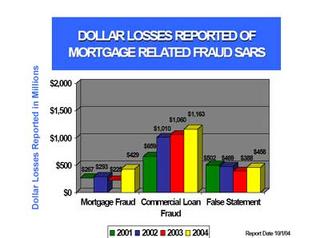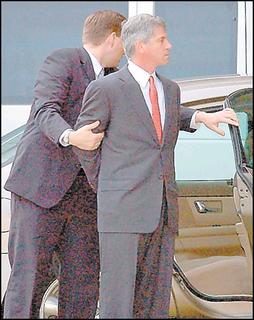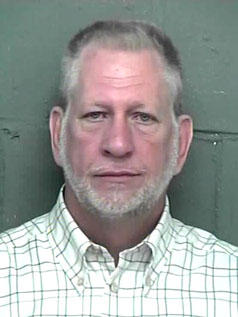
In major metropolitan areas, housing prices have almost tripled. In the great rush to buy a home before it is priced beyond affordability, sharks (fraudsters) are victimizing many a person.
The FBI's Financial Crimes Report, indicates that the primary cause is an increased reliance by both financial institutions and non-financial institution lenders on third party brokers. Because of this, they have consolidated all mortgage fraud programs within their Financial Institution Fraud Unit.
A large part of the mortgage industry isn't required to report fraud, which is the reason that the true cost of mortgage fraud is hard to determine. Here are the two areas, the FBI investigates:
Fraud for Profit
"Fraud for Profit is sometimes referred to as "Industry Insider Fraud" and the motive is to revolve equity, falsely inflate the value of the property, or issue loans based on fictitious properties. Based on existing investigations and mortgage fraud reporting, 80 percent of all reported fraud losses involve collaboration or collusion by industry insiders."
Fraud for Housing
"Fraud for Housing represents illegal actions perpetrated solely by the borrower. The simple motive behind this fraud is to acquire and maintain ownership of a house under false pretenses. This type of fraud is typified by a borrower who makes misrepresentations regarding his income or employment history to qualify for a loan."
These two types of fraud are not the same as predatory lending practices, which normally affect the borrower, often a senior citizen. "Predatory lending typically effects senior citizens, lower income and challenged credit borrowers. Predatory lending forces borrowers to pay exorbitant loan origination/settlement fees, sub-prime or higher interest rates, and in some cases, unreasonable service fees. These practices often result in the borrower defaulting on his mortgage payment and undergoing foreclosure or forced refinancing."
There are a lot of other mortgage fraud schemes. The FBI primarily focuses on the above listed types, but also is trying to educate the public. "Other fraud trends include "equity skimming, property flipping, and mortgage related identity theft. Equity skimming is a tried and true method of committing mortgage fraud. Today's common equity skimming schemes involve the use of corporate shell companies, corporate identity theft, and the use or threat of bankruptcy/foreclosure to dupe homeowners and investors. Property flipping is nothing new; however, once again law enforcement is faced with an educated criminal element that is using identity theft, straw borrowers and shell companies, along with industry insiders to conceal their methods and override lender controls."
Property flipping is best described as purchasing properties and artificially inflating their value through false appraisals. The artificially valued properties are then repurchased several times for a higher price by associates of the "flipper." After three or four sham sales, the properties are foreclosed on by victim lenders. Often flipped properties are ultimately repurchased for 50 - 100 percent of their original value."
Predatory lending is primarily left to the States to investigate.
Here are some indicators and tips from the FBI on how to spot this activity and avoid becoming a victim.
MORTGAGE FRAUD INDICATORS
Inflated Appraisals
• Exclusive use of one appraiser
Increased Commissions/Bonuses - Brokers and Appraisers
• Bonuses paid (outside or at settlement) for fee-based services
• Higher than customary fees
Falsifications on Loan Applications
• Buyers told/explained how to falsify the mortgage application
• Requested to sign blank application
Fake Supporting Loan Documentation
• Requested to sign blank employee or bank forms
• Requested to sign other types of blank forms
Purchase Loans Disguised as Refinance
• Purchase loans that are disguised as refinances requires less documentation/lender scrutiny
Investors-Short Term Investments with Guaranteed Re-Purchase
• Investors used to flip property prices for fixed percentage
• Multiple "Holding Companies" utilized to increase property values
COMMON MORTGAGE FRAUD SCHEMES
Property Flipping - Property is purchased, falsely appraised at a higher value, and then quickly sold. What makes this illegal is that the appraisal information is fraudulent. The schemes typically involve one or more of the following: fraudulent appraisals, doctored loan documentation, inflating buyer income, etc. Kickbacks to buyers, investors, property/loan brokers, appraisers, title company employees are common in this scheme. A home worth $20,000 may be appraised for $80,000 or higher in this type of scheme.
Silent Second - The buyer of a property borrows the down payment from the seller through the issuance of a non-disclosed second mortgage. The primary lender believes the borrower has invested his own money in the down payment, when in fact, it is borrowed. The second mortgage may not be recorded to further conceal its status from the primary lender.
Nominee Loans/Straw Buyers - The identity of the borrower is concealed through the use of a nominee who allows the borrower to use the nominee's name and credit history to apply for a loan.
Fictitious/Stolen Identity - A fictitious/stolen identity may be used on the loan application. The applicant may be involved in an identity theft scheme: the applicant's name, personal identifying information and credit history are used without the true person's knowledge.
Inflated Appraisals - An appraiser acts in collusion with a borrower and provides a misleading appraisal report to the lender. The report inaccurately states an inflated property value.
Foreclosure Schemes - The perpetrator identifies homeowners, who are at risk of defaulting on loans or whose houses are already in foreclosure. Perpetrators mislead the homeowners into believing that they can save their homes in exchange for a transfer of the deed and up-front fees. The perpetrator profits from these schemes by remortgaging the property or pocketing fees paid by the homeowner.
Equity Skimming - An investor may use a straw buyer, false income documents, and false credit reports, to obtain a mortgage loan in the straw buyer's name. Subsequent to closing, the straw buyer signs the property over to the investor in a quit claim deed which relinquishes all rights to the property and provides no guaranty to title. The investor does not make any mortgage payments and rents the property until foreclosure takes place several months later.
Air Loans - This is a non-existent property loan where there is usually no collateral. An example of an air loan would be where a broker invents borrowers and properties, establishes accounts for payments, and maintains custodial accounts for escrows. They may set up an office with a bank of telephones, each one used as the employer, appraiser, credit agency, etc., for verification purposes.
Mortgage Fraud Prevention Measures
General Fraud Tips
Mortgage Fraud is a growing problem throughout the United States. People want to believe their homes are worth more than they are, and with housing booms going on throughout the U.S., there are people who try to capitalize on the situation and make an easy profit.
Tips to protect you from becoming a victim of Mortgage Fraud
• Get referrals for real estate and mortgage professionals. Check the licenses of the industry professionals with state, county, or city regulatory agencies.
• If it sounds too good to be true, it probably is. An outrageous promise of extraordinary profit in a short period of time signals a problem.
• Be wary of strangers and unsolicited contacts, as well as high-pressure sales techniques.
• Look at written information to include recent comparable sales in the area and other documents such as tax assessments to verify the value of the property.
• Understand what you are signing and agreeing to--If you do not understand, re-read the documents, or seek assistance from an attorney.
• Make sure the name on your application matches the name on your identification.
• Review the title history to determine if the property has been sold multiple times within a short period--It could mean that this property has been "flipped" and the value falsely inflated.
• Know and understand the terms of your mortgage--Check your information against the information in the loan documents to ensure they are accurate and complete.
• Never sign any loan documents that contain blanks--This leaves you vulnerable to fraud.•
Mortgage Debt Elimination Schemes
• Be aware of e-mails or web-based advertisements that promote the elimination of mortgage loans, credit card and other debts while requesting an up-front fee to prepare documents to satisfy the debt. The documents are typically entitled Declaration of Voidance, Bond for Discharge of Debt, Bill of Exchange, Due Bill, Redemption Certificate, or other similar variations. These documents do not achieve what they purport.
• There is no magic cure-all to relieve you of debts you incurred.
• Borrowers may end up paying thousands of dollars in fees without the elimination or reduction of any debt.
Foreclosure Fraud Schemes
Perpetrators mislead the homeowners into believing that they can save their homes in exchange for a transfer of the deed, usually in the form of a Quit-Claim Deed, and up-front fees. The perpetrator profits from these schemes by remortgaging the property or pocketing fees paid by the homeowner without preventing the foreclosure. The victim suffers the loss of the property as well as the up-front fees.
• Be aware of offers to "save" homeowners who are at risk of defaulting on loans or whose houses are already in foreclosure.
• Seek a qualified Credit Counselor or attorney to assist.
Predatory Lending Schemes
• Before purchasing a home, research information about prices of homes in the neighborhood.• Shop for a lender and compare costs. Beware of lenders who tell you that they are your only chance of getting a loan or owning your own home.
• Beware of "No Money Down" loans--This is a gimmick used to entice consumers to purchase property that they likely cannot afford or are not qualified to purchase. Be wary of mortgage professional, who falsely alter information to qualify the consumer for the loan.
• Do not let anyone convince you to borrow more money than you can afford to repay.
• Do not let anyone persuade you into making a false statement such as overstating your income, the source of your down payment, or the nature and length of your employment.• Never sign a blank document or a document containing blanks.
• Read and carefully review all loan documents signed at closing or prior to closing for accuracy, completeness and omissions.
• Be aware of cost or loan terms at closing that are not what you have agreed to.
• Do not sign anything you do not understand.
• Be suspicious if the cost of a home improvement goes up if you accept the contractor's financing.
• If it sounds too good to be true--it probably is.
An interesting blog with a wealth of information is done by Rachel Dollar, of the Dollar Law Firm. Her blog is:
For the full Financial Crimes Report from the FBI, which is a great resource on fraud, click on the title of this post.
Buying a home is the American dream. If you spot one of these scams, report it to your appropriate local (State) agency, or directly to the FBI at: https://tips.fbi.gov/.







